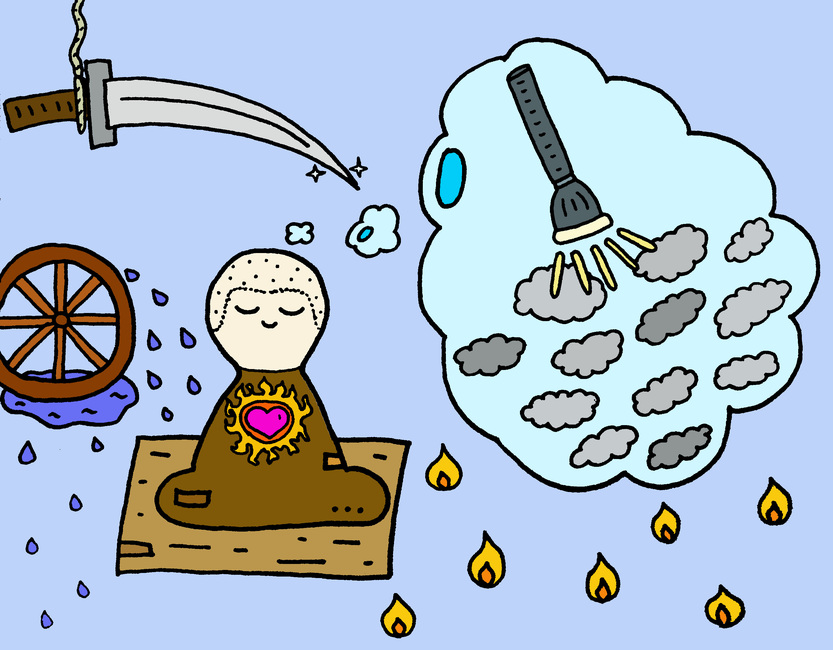De videoserie “Dhammathreads” met Bhante Sujato & friends biedt enkele discussies over de verzen van de oudere monniken, de Theragāthā, in de nieuwe Engelse vertaling van Bhante Sujato. In het geval ze beschikbaar zijn, voegen we wat illustraties toe door Ven. Yodha naar de respectieve verzen.
Thag 1.1: Subhūti
Mijn hut is bedekt, comfortabel,
vrij van ontwerpen;
mijn geest, goed geconcentreerd,
is bevrijd.
Ik blijf alert,
dus, regen-deva,
ga je gang en regen!
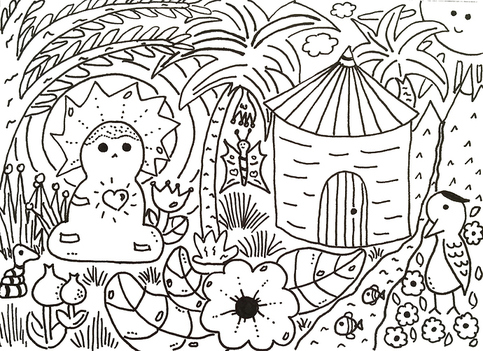
Thag 1.22: Cittaka
Crested peacocks with beautiful blue necks
Cry out in Karaṃvī.
Aroused by a cool breeze,
They awaken the sleeper to practice jhāna.
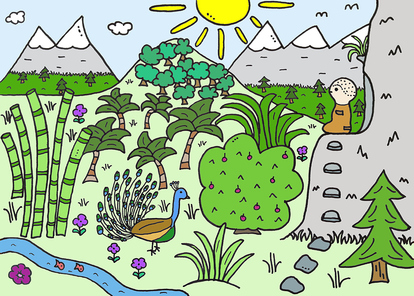
Thag 1.26: Abhaya
Having heard the wonderful words
Of the Buddha, the Kinsman of the Sun,
I penetrated the subtle truth,
Like a hair-tip with an arrow.
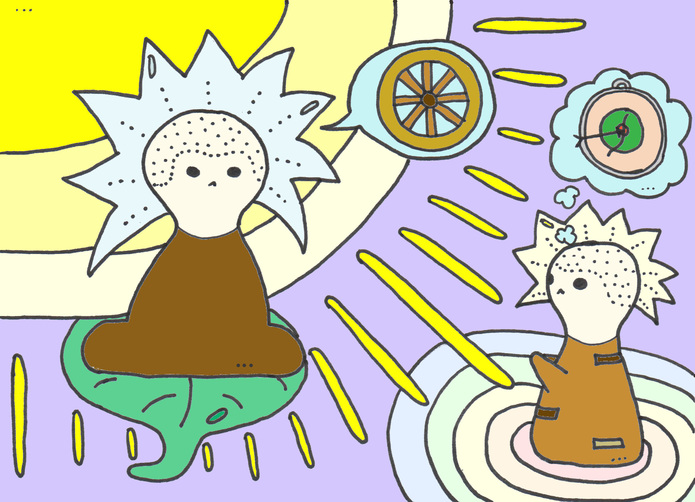
Thag 1.43: Sumaṅgala
Well freed! Well freed!
I’m very well freed from three crooked things:
My sickles, my ploughs, my little hoes.
Even if they were here, right here—
I’d be done with them, done!
Practice jhāna Sumaṅgala, practice jhāna Sumaṅgala!
Stay heedful, Sumaṅgala!
Thag 1.56: Kuṭivihāri
“Who is in this little hut?”
“A monk is in this little hut,
Free of lust, his mind serene in samādhi.
My friend, you should know this:
Your little hut wasn’t built in vain.”
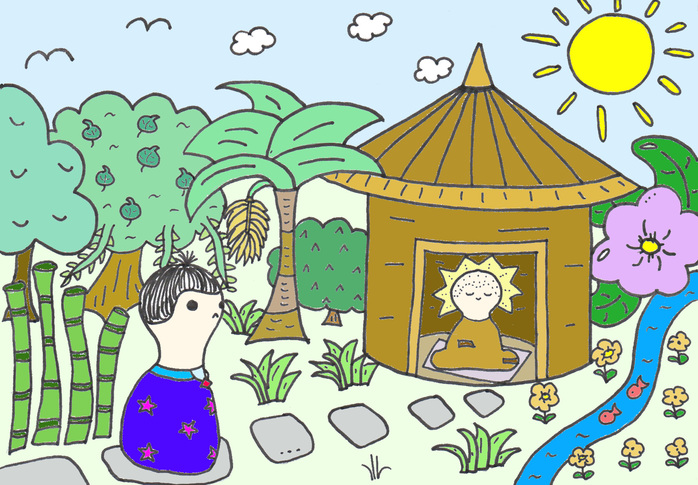
Thag 1.120: Isidatta
The five aggregates are fully understood,
They remain, but their root is severed.
I have realized the end of suffering,
And attained the end of defilements.
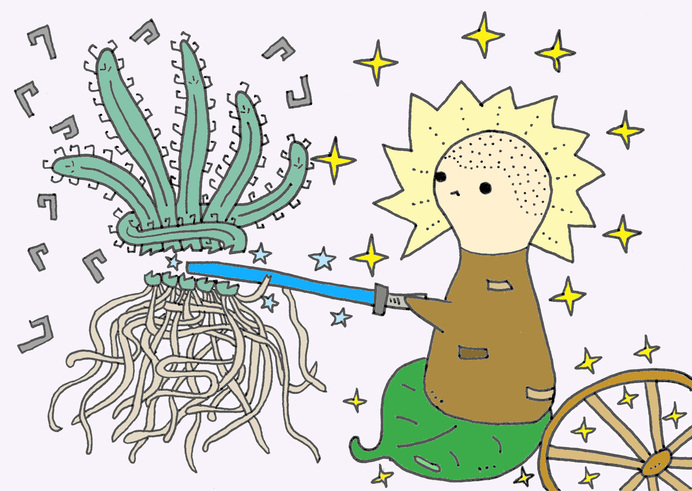
Thag 2.10: Vasabha
First one kills oneself,
Then one kills others.
One kills oneself, really dead,
Like one who kills birds using a dead bird as a decoy.
A holy man’s color is not on the outside;
A holy man is colored on the inside.
Whoever does bad deeds
Such a one is truly dark, Sujampati.
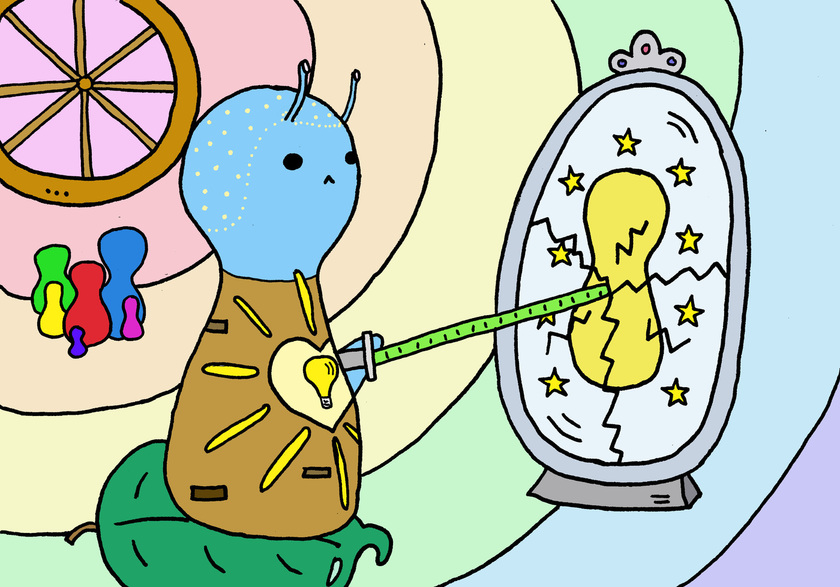
Thag 2.16: Mahākāḷo
There’s a big black woman who looks like a crow.
She broke off thigh-bones, first one then another;
She broke off arm-bones, first one then another;
She broke off a skull like a curd-bowl, and then—
She assembled them all together, and sat down beside them.
When an ignorant person builds up attachments,
That idiot returns to suffering, again and again.
So let one who understands not build up attachments:
May I never again lie with a broken skull!
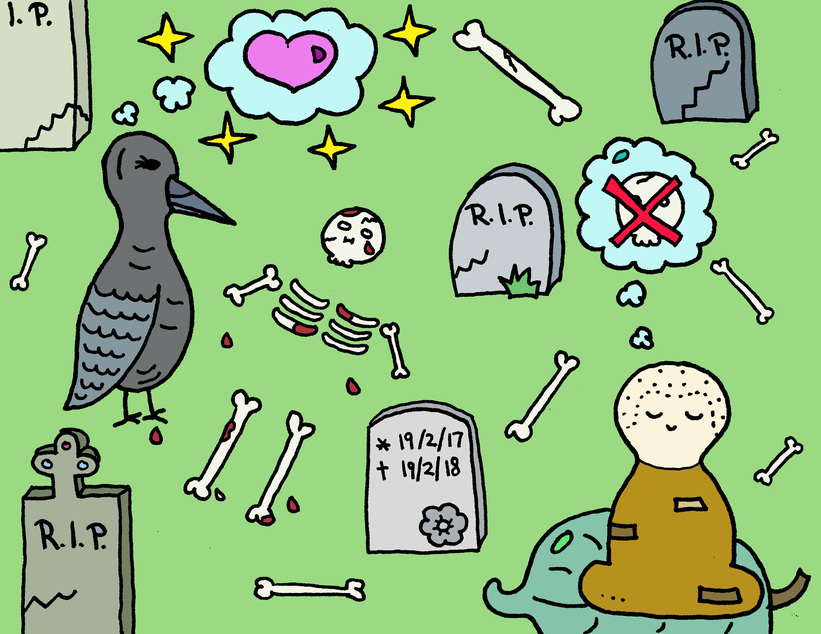
Thag 2.3: Valliya
A monkey went up to the little hut
With five doors.
He circles around, knocking
On each door, again and again.
Stand still monkey, don’t run!
Things are different now;
You’ve been caught by wisdom—
You won’t go far.
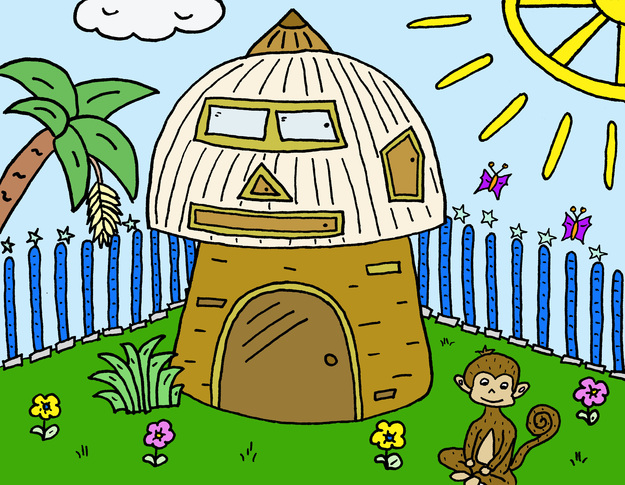
Thag 12.2: Sunīta
In een lage kaste werd ik geboren,
arm, met bijna niets te eten.
Mijn werk was vernederend:
Ik raapte het vuil bij elkaar dat door anderen was weggegooid
—de verwelkte bloemen van de tempels—
en ruimde ze op.
Mensen vonden me walgelijk,
minachtte mij, kleineerde mij.
En ik verlaagde mezelf,
door voor hen te buigen.
Toen zag ik de Ontwaakte,
omringd door een groep monniken.
De Grote Held ging de hoofdstad van de Magadha binnen.
Ik gooide mijn juk neer,
ging naar hem toe om hem eerbied te betuigen.
Hij—de Verheven Man—stond stil,
uit sympathie,
helemaal voor mij alleen.
Na, aan de voeten van de Meester,
hulde te hebben betuigd,
stond ik aan zijn zijde,
en verzocht hem
—die verheven is onder alle wezens—
mij in te wijden.
De Leraar van mededogen
—die voor alles in de wereld sympathie kent—, zei:
“Kom, monnik.”
Dat was zijn formele acceptatie.
Ik verbleef alleen in het woud,
onvermoeibaar,
Ik volgde de woorden van de Meester op,
precies zoals hij, de Overwinnaar,
mij geleerd had.
In het eerste deel van de nacht,
herinnerde ik me mijn vorige levens,
in het middelste deel van de nacht
werd het bovenwereldse oog gezuiverd,
in het laatste deel van de nacht
barste de duisternis open.
Toen de nacht ten einde was,
en de zon terugkeerde,
kwamen Indra en Brahma naar mij toe
om mij hulde te betuigen,
met hun handen samengevouwen voor hun hart:
“Hulde aan u, o edele onder de mensen,
hulde aan u, o verheven man,
wiens onrust is beëindigd.
U, beste man, bent offergaven waardig!”
Toen hij mij zag,
omringd door een groep deva’s,
glimlachte de Meester, en zei:
“Door ernst, door alleen te leven,
door beheersing en zelfcontrole,
dat is hoe iemand een waar brahmaan is.
Hij is inderdaad een waar brahmaan.”
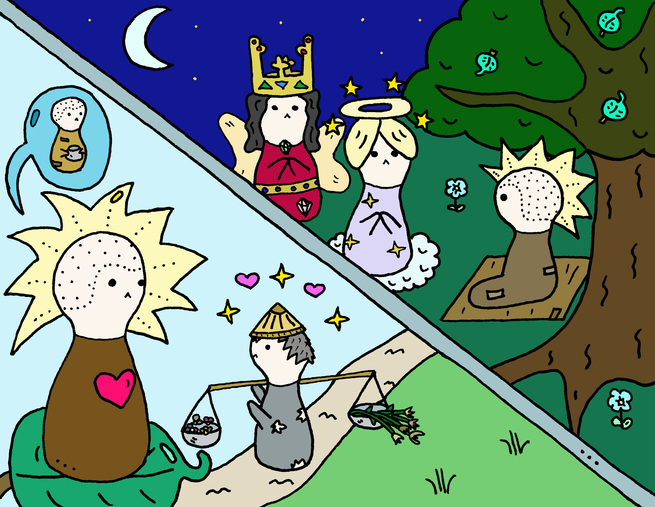
Thag 1.18: Siṅgālapitu
There was an heir of the Buddha,
A monk in Bhesakaḷā forest,
Who suffused the entire earth
With the perception of “bones”.
I think he will quickly abandon sensual desire.
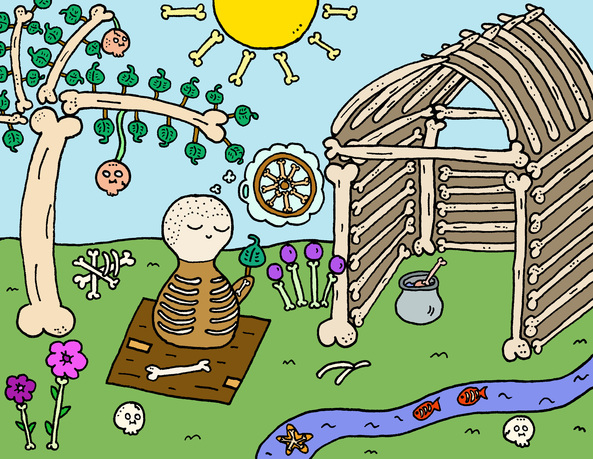
Thag 1.38: Gavampati
His psychic power made the river Sarabhu stand still;
Gavampati is unbound and unperturbed.
The gods bow to that great sage,
Who has left behind all attachments,
And gone beyond rebirth in any state of existence.
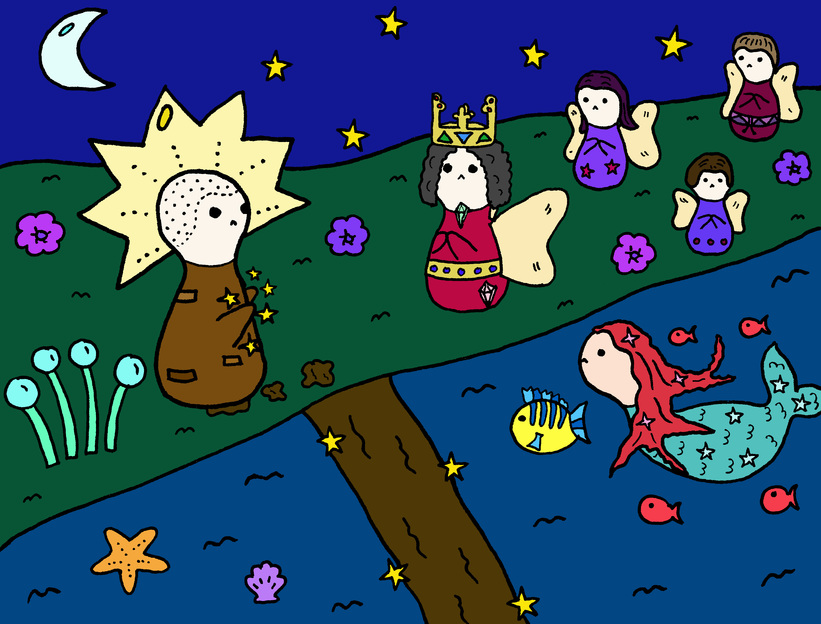
Thag 1.39: Tissa
Alsof hij wordt getroffen door een zwaard,
alsof zijn hoofd in brand staat,
zo zou een monnik het thuisloze leven moeten leiden
—indachtig—
voor het achterlaten van zintuiglijke begeerte.
Thag 1.104: Kithaka
Hey! My body is light,
Full of so much rapture and happiness.
My body feels like it’s floating,
Like cotton on the wind.
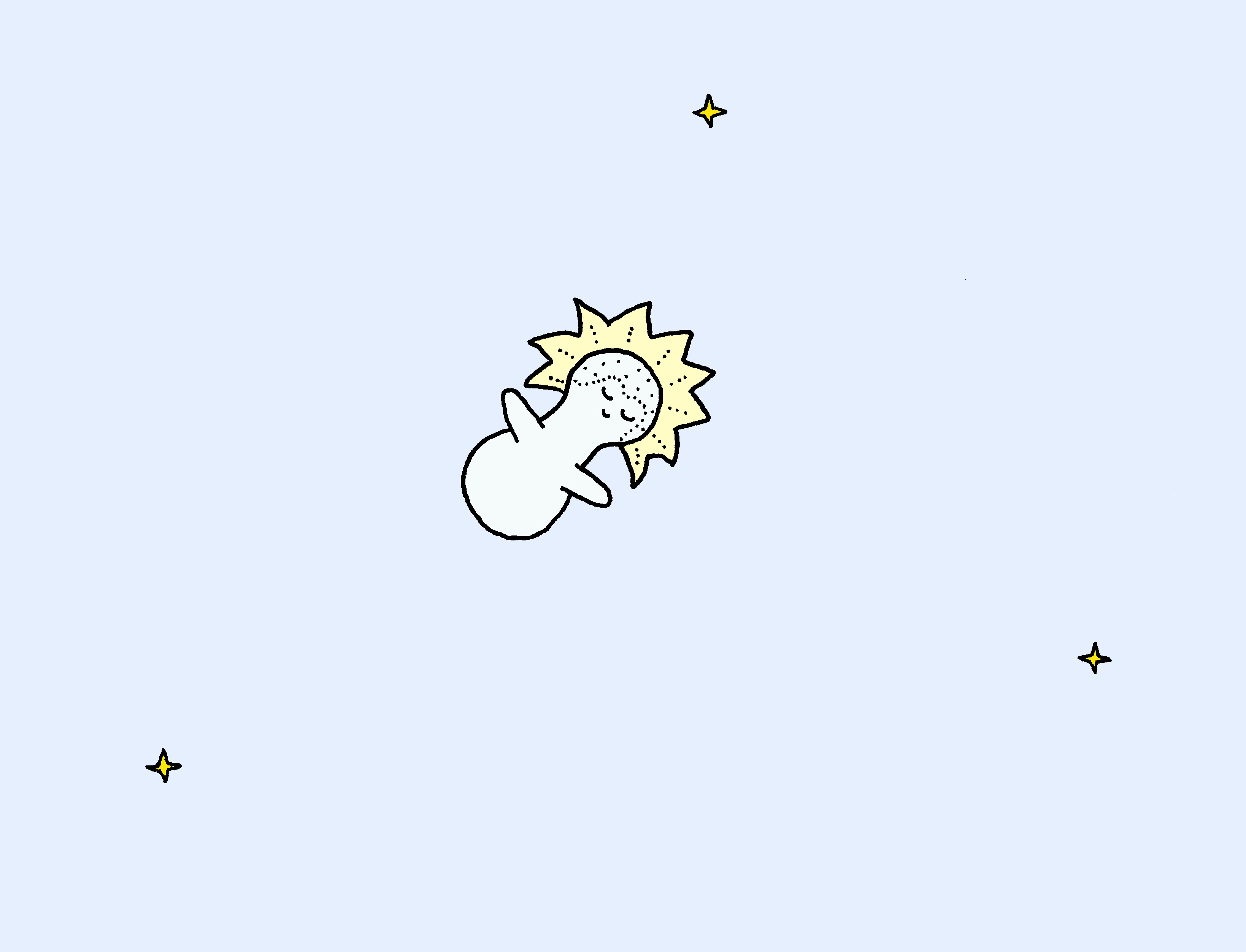
Thag 1.112: Vacchagotta
I have the three knowledges, I’m a great meditator,
Skilled in serenity of mind.
I’ve realized my own true goal,
And fulfilled the Buddha’s instructions.
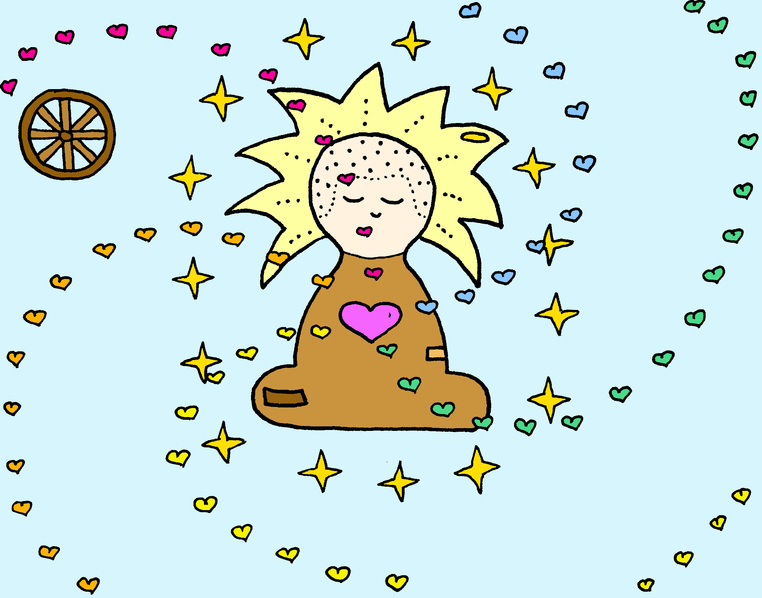
Thag 2.4: Gaṅgātīriya
My hut on the bank of the Ganges
Is made from three palm leaves.
My alms-bowl is a funeral pot,
My robe is castoff rags.
In my first two rainy seasons
I spoke only one word.
In my third rainy season,
The mass of darkness was torn apart.
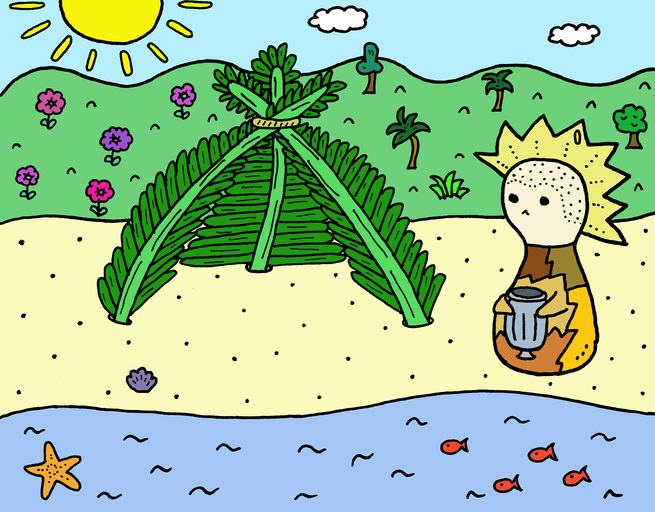
Thag 2.15: Sabbamitta
People are attached to people;
People are dependent on people;
People are hurt by people;
And people hurt people.
What’s the point of people,
Or the things people make?
Go, leave these people,
Who’ve hurt so many people.
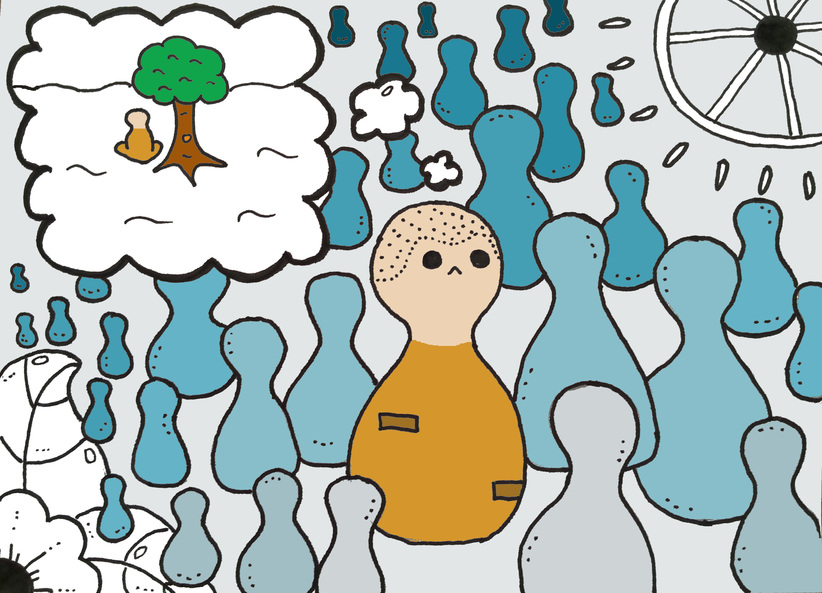
Thag 2.40: Kappaṭakura
This fellow, “Rag-rice”, he sure is a rag.
This place has been made for practising jhāna,
Like a crystal vase filled to the brim
With the nectar of the deathless,
Into which enough Dhamma has been poured.
Don’t nod off, Rag—
I’ll smack your ear!
Nodding off in the middle of the Saṅgha?
You haven’t learnt a thing.
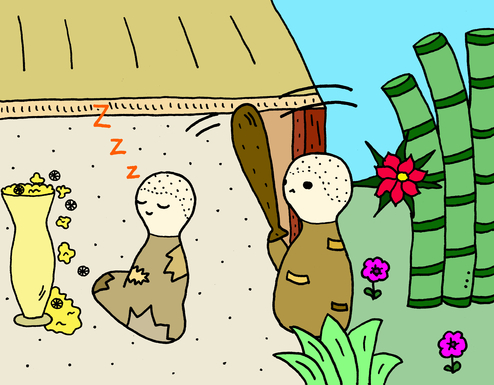
Thag 4.5: Jambuka
For fifty-five years
I wore mud and dirt;
Eating one meal a month,
I tore out my hair and beard.
I stood on one foot;
I rejected seats;
I ate dried-out dung;
I didn’t accept food that had been set aside for me.
Having done many actions of this kind,
Which lead to a bad destination,
As I was being swept away by the great flood,
I went to the Buddha for refuge.
See the going for refuge!
See the excellence of the Dhamma!
I’ve attained the three knowledges,
And fulfilled the Buddha’s instructions.
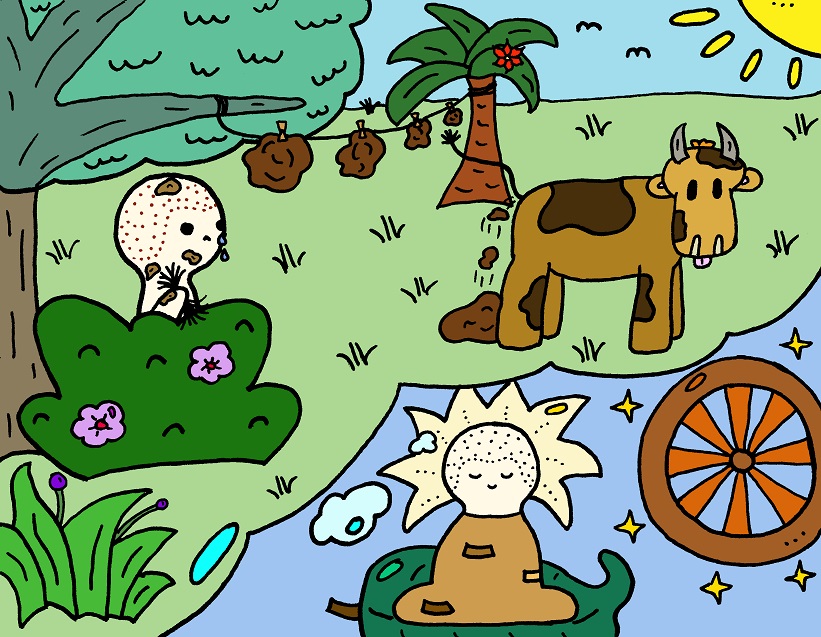


 English
English Deutsch
Deutsch Français
Français
